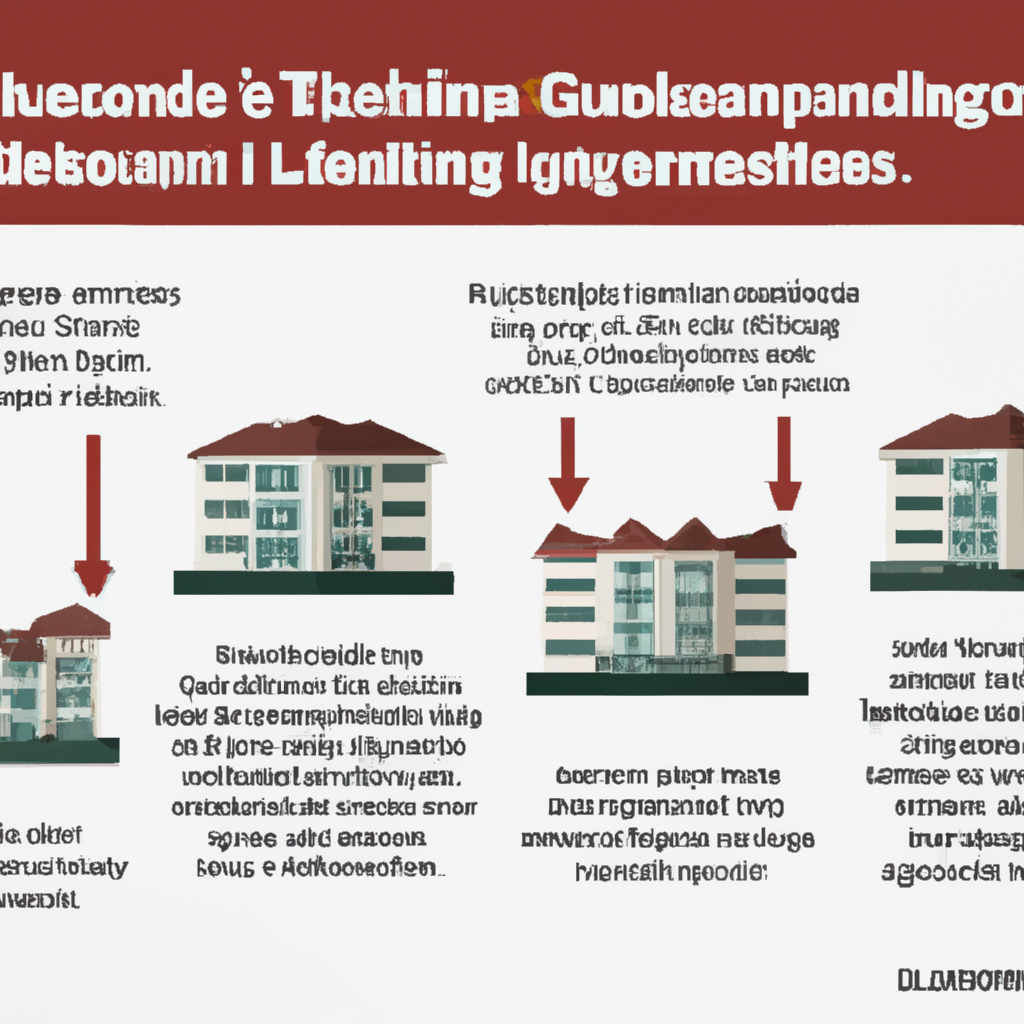Living in a condominium can offer a unique and comfortable lifestyle, but it also comes with its own set of advantages and limitations. In this article, we will explore the pros and cons of living in a condominium, allowing you to make an informed decision about whether this type of housing is the right fit for you. From the convenience of amenities to the potential lack of privacy, we’ll cover all the aspects you need to consider when contemplating condominium living. So, let’s dive in and discover the various aspects that can make living in a condominium either a dream come true or a potential challenge.

Understanding Condominium Living
Definition of a condominium
A condominium, often referred to as a condo, is a type of housing arrangement where individuals own their individual units within a larger building or development. In a condominium, you own the interior of your unit, while the external areas and common spaces are jointly owned by all the residents.
Unique features of condominiums
One of the unique features of condominium living is the shared ownership of common areas and amenities. These can include fitness centres, swimming pools, common lounges, and outdoor spaces. Additionally, condominiums often have a condo association that manages the overall maintenance and upkeep of the building.
Common types of condominiums
There are different types of condominiums to suit various preferences and lifestyles. High-rise condominiums are typically found in urban areas and offer stunning views and convenient access to amenities. Townhouse-style condominiums provide a more traditional neighbourhood feel, with individual units sharing common walls. There are also low-rise and mid-rise buildings, offering a more intimate living environment.
The Financial Aspects of Condominium Living
Purchase price and comparison to a house
When considering the financial aspects of condominium living, it’s essential to weigh the purchase price against that of a standalone house. Condominiums are often a more affordable option, particularly in prime city locations where detached homes may be out of reach for many potential buyers.
Condominium fees and their purpose
Condominium fees, often referred to as maintenance fees, are monthly payments made by condo owners to cover the operating expenses of the building. These fees contribute to the maintenance and repair of common areas, security services, utilities, and the overall upkeep of the building.
Potential for appreciation in value
Condominiums offer the potential for appreciation in value over time, just like any other real estate investment. Factors such as location, demand, and market conditions influence the value of a condominium. It’s worth noting that while some condos may outperform the market, others may not experience significant appreciation.
Cost of maintenance and repairs
One advantage of condominium living is that the responsibility for regular maintenance and repairs is typically shared among all residents. This can help alleviate the financial burden of unexpected repairs or major renovations. However, it’s important to consider that condo fees may increase if significant repairs or upgrades are needed for the building.

Pros of Living in a Condominium
Less Maintenance Responsibilities
Living in a condominium means less maintenance responsibilities compared to owning a standalone house. The condo association is responsible for handling routine maintenance tasks, such as mowing the lawn, cleaning common areas, and maintaining the exterior of the building. This can free up your time to focus on other aspects of your life.
Variety of amenities
Condominiums often offer a wide range of amenities that may not be accessible in a standalone house. These can include fitness centres, swimming pools, saunas, rooftop terraces, and even on-site concierge services. Having these amenities within your building provides convenience and the opportunity to lead a more active and enjoyable lifestyle.
Built-in community
Living in a condominium provides a built-in sense of community. You have the opportunity to meet and interact with your neighbours in common areas, such as the lobby, fitness centre, or communal garden. This can lead to lasting friendships and a support system that is readily available.
Real Estate Investment
Condominiums can be a smart real estate investment. As mentioned earlier, there is the potential for appreciation in value over time. Additionally, if the housing market experiences a downturn, condominiums often hold their value better than other property types. This makes them a sound choice for those looking to build equity or generate rental income.
Safety and Security
Condominium living can offer an added level of safety and security. Many buildings have security features such as secure entry systems, 24-hour surveillance, and on-site security guards. This can provide peace of mind, especially for individuals living alone or those concerned about the security of their property.
Practical Living
Condominiums are designed and built with practicality in mind. The layouts are often efficient and space-saving, making them ideal for individuals or small families. Additionally, maintenance tasks such as snow removal and landscaping are taken care of, allowing you to enjoy your living space without worrying about these chores.
Cons of Living in a Condominium
Lack of privacy
One potential downside of condominium living is the lack of privacy compared to living in a standalone house. You share walls, floors, and sometimes ceilings with your neighbours, which can result in noise transmission and less privacy overall. However, this can vary depending on the construction quality and the consideration of your neighbours.
Condo association fees
Condo association fees, while covering the expenses mentioned earlier, can be a financial burden for some individuals. These fees are mandatory and can increase over time due to rising operating costs or special assessments for major repairs or renovations. It’s crucial to budget for these fees when considering condominium living.
Limited control over external aesthetics
When living in a condominium, you have limited control over the external aesthetics of the building. Exterior changes and renovations typically require approval from the condo board or association. This means you may not have the freedom to modify the facade or landscaping according to your personal preference.
Potential for mismanaged funds
Some condominiums have faced issues with mismanagement of funds by their association. This can result in financial instability, inadequate maintenance, or unexpected special assessments. It’s essential to thoroughly research the condo association’s financial history and practices before purchasing a unit to mitigate this potential risk.
Disputes with neighbours
Living in close proximity to your neighbours can sometimes lead to conflicts or disputes. Noise complaints, disagreements over common area usage, or differences in lifestyle can all be potential sources of tension. It’s important to be respectful of your neighbours’ rights and communicate openly to resolve any issues should they arise.
Less Freedom in Home Improvements
Unlike owning a standalone house, living in a condominium may limit your freedom in making certain home improvements. The condominium association may have restrictions on structural modifications, exterior updates, or even smaller changes like paint colours. It’s crucial to review the condo’s rules and regulations regarding home improvements before purchasing.

Condominium Amenities and Benefits
Fitness centres
Many condominiums offer on-site fitness centres equipped with state-of-the-art equipment, allowing residents to exercise conveniently without having to join a gym. This can save time and money, as well as promote a healthy and active lifestyle.
Swimming pools and common areas
Swimming pools and common areas such as rooftop terraces or landscaped gardens provide opportunities for relaxation and socializing. These amenities are often maintained by the condo association, allowing residents to enjoy these spaces without the hassles of maintenance.
Security features
Condominiums often invest in security features to ensure the safety of their residents. This can include secure entry systems, surveillance cameras, and on-site security guards. Having these security measures in place can bring peace of mind and a sense of security within the building.
Parking and transportation conveniences
Many condominiums offer designated parking spaces or parking garages for residents. This can be particularly beneficial for individuals living in urban areas with limited parking availability. Additionally, some condominiums are conveniently located near public transportation, making commuting easier and reducing reliance on private vehicles.
Condominium Rules and Regulations
Compliance with association rules
Living in a condominium involves adhering to the rules and regulations set by the condominium association. These rules can vary but may cover areas such as noise restrictions, pet policies, and the use of common areas. It’s important to familiarize yourself with these rules to ensure a harmonious living environment.
Restrictions on renovations and decorations
Condominium associations often have restrictions on renovations and decorations to maintain a cohesive and visually appealing appearance throughout the building. These restrictions may include limitations on structural changes, alterations to the exterior, or specific guidelines for decorating your unit. Be sure to review these guidelines before embarking on any home improvement projects.
Pet policies
Many condominiums have policies regarding pets, including restrictions on the number, size, or breed of pets allowed. Some buildings may have designated pet areas or even pet-related amenities such as dog parks or grooming facilities. If you have or plan to have pets, it’s important to check the condominium’s pet policies before making a decision.
Noise and behavior restrictions
To promote a peaceful living environment, condominiums often have noise and behavior restrictions in place. These can include quiet hours, guidelines for hosting gatherings, and regulations pertaining to the use of shared facilities. It’s essential to respect these rules and be considerate of your neighbours to maintain a harmonious community.
Guest policies
Condominiums may have guest policies that regulate the duration and frequency of guests staying in your unit. These policies are in place to prevent overcrowding and maintain security within the building. If you frequently have guests or anticipate having visitors for extended periods, it’s essential to review and comply with the guest policies of the condominium.

Neighborhood Relations in Condominium
Living closely with neighbors
One aspect of condominium living is the close proximity to your neighbors. You will likely share walls, floors, or ceilings with other residents, creating a community-like atmosphere. This close living arrangement can foster a sense of belonging and provide opportunities for social interactions.
Community events and gatherings
Many condominiums organize community events and gatherings, such as holiday parties, fitness classes, or game nights. These events provide residents with the chance to meet their neighbors, build relationships, and create a strong sense of community. Participating in these activities can enhance your overall condominium living experience.
Dispute resolution
Living in close quarters can sometimes result in conflicts with neighbors. Condominium associations typically have dispute resolution mechanisms in place to help address these issues. These mechanisms may involve mediation or arbitration to find mutually beneficial resolutions. It’s important to communicate openly and respectfully to resolve disputes and maintain a harmonious living environment.
Assessing the Real Estate Market for Condominiums
Current market conditions
Assessing the real estate market for condominiums involves understanding current market conditions. Factors such as supply and demand, interest rates, and general economic conditions can influence the market. It’s advisable to research market trends and consult with real estate professionals to get a comprehensive understanding of the market before making a purchase.
Demand for condominiums
The demand for condominiums varies based on factors such as location, amenities offered, and the overall attractiveness of the building or development. Urban areas or areas with limited space for detached homes often experience high demand for condominiums. Understanding the demand for condominiums in your desired location can help inform your decision-making process.
Comparison to other property types
When assessing the real estate market, it’s important to compare condominiums to other property types, such as detached houses or townhouses. Consider factors such as affordability, maintenance responsibilities, available amenities, and overall lifestyle preferences. This comparison can help determine if condominium living aligns with your specific needs and preferences.

Making the Decision: Is Condo Living Right for You?
Weighing the pros and cons
Making the decision to live in a condominium requires careful consideration of the pros and cons. Take the time to review all the advantages and disadvantages discussed in this article and think about how they align with your lifestyle, preferences, and long-term goals. Weighing these pros and cons will help you make an informed decision.
Assessing your lifestyle and needs
Consider your lifestyle and needs when considering condominium living. If you value convenience, access to amenities, and a sense of community, condominium living may be an ideal fit. On the other hand, if you prioritize privacy, control over your living space, and freedom in home modifications, a standalone house may be a better choice. Assessing your lifestyle and needs will help determine if condominium living aligns with your expectations.
Financial considerations
Financial considerations play a significant role in deciding whether condominium living is right for you. Evaluate your budget, including the purchase price, condominium fees, and potential future expenses such as repairs or renovations. It’s essential to ensure that condominium living is financially feasible and aligns with your long-term financial goals.
Impact of Condominium Living on Lifestyle
Adjusting to shared spaces
Living in a condominium requires adjusting to shared spaces and communal living arrangements. This includes being mindful of noise levels, respecting common area usage guidelines, and considering the needs and preferences of your neighbors. Adapting to these shared spaces can enhance your overall condominium living experience.
Influence on social life
Condominium living can have a significant impact on your social life. The built-in community and proximity to neighbors provide ample opportunities for social interactions and connections. Participating in community events or joining communal facilities can help you meet new people and foster meaningful relationships.
Impact on family life
Condominium living can impact family life, particularly if you have children. Consider factors such as available amenities for children, proximity to schools and parks, and the overall family-friendly atmosphere of the building or development. It’s important to ensure that the condominium environment aligns with the needs and preferences of your family.
Effects on work and commute
When deciding on condominium living, consider the impact on your work and commute. Living in a central location with easy access to public transportation or major highways can make commuting more convenient. However, if your workplace is located far away from the condominium, it’s important to factor in the time and cost of commuting.
Adjustment to rules and regulations
Living in a condominium requires adherence to rules and regulations set by the condominium association. It may take some time to adjust to these rules, particularly if you are accustomed to the freedom and flexibility of standalone homeownership. However, with proper understanding and communication, adjusting to these rules can lead to a harmonious living environment.
Living in a condominium offers a unique and attractive lifestyle for many individuals. Understanding the definition, unique features, and common types of condominiums lays the foundation for informed decision-making. Considering the financial aspects, pros and cons, amenities, rules and regulations, neighborhood relations, and the impact on your lifestyle will ultimately help you determine if condominium living is right for you. By carefully weighing all these factors and conducting thorough research, you’ll be able to make a confident decision that aligns with your needs, preferences, and long-term goals.
